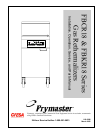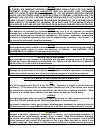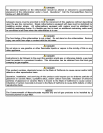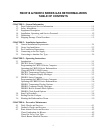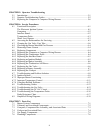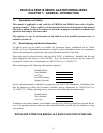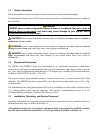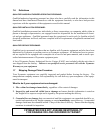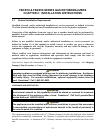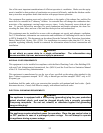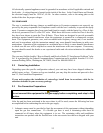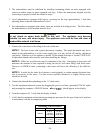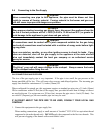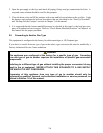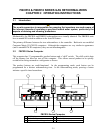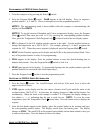
2-1
FBCR18 & FBKR18 SERIES GAS RETHERMALIZERS
CHAPTER 2: INSTALLATION INSTRUCTIONS
2.1 General Installation Requirements
Qualified, licensed, and/or authorized installation or service personnel, as defined in Section
1.6 of this manual, should perform all installation and service on Frymaster equipment.
Conversion of this appliance from one type of gas to another should only be performed by
qualified, licensed, and/or authorized installation or service personnel as defined in Section 1.6
of this manual.
Failure to use qualified, licensed, and/or authorized installation or service personnel (as
defined in Section 1.6 of this manual) to install, convert to another gas type or otherwise
service this equipment will void the Frymaster warranty and may result in damage to the
equipment or injury to personnel.
Where conflicts exist between instructions and information in this manual and local or
national codes or regulations, installation and operation shall comply with the codes or
regulations in force in the country in which the equipment is installed.
Upon arrival, inspect the rethermalizer carefully for visible or concealed damage. (See Shipping
Damage Claim Procedure in Chapter 1.)
WARNING
Frymaster appliances equipped with legs are for stationary installations. Appliances
fitted with legs must be lifted during movement to avoid damage to the appliance
and bodily injury. For movable installations, optional equipment casters must be
used. Questions? Call 1-800-551-8633.
CLEARANCE AND VENTILATION
DANGER
No structural material on this appliance should be altered or removed to accommo-
date placement of the appliance under a hood. Questions? Call the Frymaster/Dean
Service Hotline at 1-800-551-8633.
DANGER
This appliance must be installed with sufficient ventilation to prevent the occurrence
of unacceptable concentrations of substances harmful to the health of personnel in
the room in which it is installed.
This equipment must be installed with a 6” (150mm) clearance at both sides and back when installed
adjacent to combustible construction. No clearance is required when installed adjacent to noncom-
bustible construction. A minimum of 24” (600mm) clearance should be provided at the front of the
unit.



